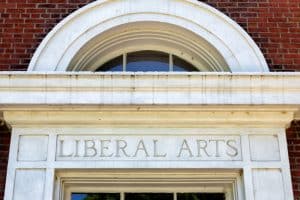Comparing Private vs Public College: Pros and Cons
Choosing the right college is as much about finding a place that fits your educational needs as it is about choosing the one that aligns best with your financial circumstances. Given how education is structured today, these needs often boil down to the choice of private vs public college. Each has its unique benefits, drawbacks, and defining characteristics. In the pursuit of shedding light on this important decision, we compare the pros and cons of private vs public colleges in this article.
Understanding the Basics of a Private vs Public College
Before we delve into the comparison of private vs public colleges, let’s start with understanding the basics.
Defining Private Colleges
Private colleges are academic institutions maintained and governed by entities other than the state or federal government. Typically, their funding comes from student tuition, endowments, and private donors. This source of income, though imposing a greater financial burden on the students, often enables these institutions to provide an education that is distinct in various ways.
Private colleges often have smaller class sizes compared to public colleges. This allows for more personalized attention from professors and fosters a close-knit community among students. The intimate learning environment at private colleges encourages active participation and engagement, promoting a deeper understanding of the subject matter.
Additionally, private colleges often have a strong emphasis on liberal arts education. They believe in providing students with a well-rounded education encompassing a wide range of disciplines, including humanities, social sciences, natural sciences, and the arts. This broad-based education equips students with critical thinking and problem-solving skills that are highly valued in today’s rapidly changing job market.
Private colleges also tend to have extensive resources and facilities. With their higher tuition fees, they are able to invest in state-of-the-art laboratories, research centers, libraries, and other educational facilities. These resources provide students with hands-on learning opportunities and access to cutting-edge technology, enhancing their educational experience.
Defining Public Colleges
Conversely, public colleges are educational institutions primarily funded by state governments. As a result of this funding method, they are often large, varying in size and structure. These institutions offer various educational choices for students, from certificate programs to doctoral degrees.
Public colleges are known for their diverse student populations. They attract students from various backgrounds, cultures, and socioeconomic statuses. This diversity enriches the learning environment and exposes students to different perspectives, preparing them for a globalized world.
Public colleges also prioritize accessibility and affordability. In many cases, tuition fees at public colleges are lower than those at private colleges, making higher education more accessible to a broader range of students. Additionally, public colleges often offer financial aid programs and scholarships to help students cover their educational expenses.
Furthermore, public colleges often have strong ties to their local communities. They collaborate with local businesses, organizations, and government agencies to provide students with internship and job placement opportunities. This connection to the community allows students to gain practical experience and build professional networks, increasing their chances of success after graduation.
Public colleges also tend to have extensive research programs. With their larger budgets and resources, they can support groundbreaking research in various fields. Students at public colleges have the opportunity to work alongside renowned researchers and contribute to cutting-edge discoveries, fostering a culture of innovation and intellectual growth.
The Advantages of Private Colleges
In navigating the private vs public college comparison, it’s crucial to look into the advantages of each type. Let’s first explore the advantages of private colleges.
Quality of Education
Private colleges can often boast a high standard of education. Their faculty memberships consist of proficient academics, many of whom are professionals at the top of their fields. This results in an academically rigorous environment around campuses. Furthermore, due to their smaller population, these institutions can pay close attention to upholding the quality of education.
Private colleges go to great lengths to ensure their students receive a top-notch education. They invest in state-of-the-art facilities, cutting-edge technology, and well-equipped libraries to provide students with the necessary resources to excel in their studies.
The faculty members are not only experts in their respective fields but are also dedicated to their students’ success. They are readily available for one-on-one consultations, mentoring, and guidance, ensuring each student receives personalized attention and support.
Moreover, private colleges often offer various academic programs and majors, allowing students to explore their interests and passions. Whether it’s in the arts, sciences, business, or humanities, private colleges provide diverse and comprehensive educational opportunities that cater to the individual needs and aspirations of their students.
Class Sizes and Student-Faculty Ratio
One of the most common characteristics of private colleges is small class sizes. This enables a closer student-faculty interaction, enhancing the overall learning experience. With smaller class sizes, professors can often provide individual attention to students, nurturing their individual growth and fostering a conducive learning environment.
In private colleges, students have the advantage of being part of intimate learning communities. They can engage in meaningful discussions, participate in hands-on activities, and collaborate with their peers. The small class sizes allow for more interactive and engaging classroom experiences, where students can actively contribute to discussions, ask questions, and receive immediate feedback from their professors.
Additionally, the low student-faculty ratio in private colleges ensures that students have ample opportunities to build strong relationships with their professors. This close mentorship often extends beyond the classroom, as professors are invested in their students’ success and are readily available for academic guidance, research opportunities, and career advice.
Campus Culture and Community
Because of their size, private colleges usually have a strong sense of community. The close-knit nature of these institutions promotes strong bonds between students and staff. This culture often extends to alumni, leading to a strong network that can offer potential career opportunities.
Private colleges foster a vibrant campus culture that goes beyond academics. They offer a wide range of extracurricular activities, clubs, and organizations that cater to diverse interests and passions.
Students can engage in sports, arts, community service, leadership roles, and much more. These activities not only provide a well-rounded college experience but also contribute to personal growth, leadership development, and the formation of lifelong friendships.
Furthermore, private colleges often have a strong alumni network that actively supports current students and recent graduates.
Alumni often return to campus to mentor students, offer internships and job opportunities, and provide valuable insights into various industries. This network can be a valuable resource for students as they navigate their career paths and seek professional connections.
In conclusion, private colleges offer numerous advantages contributing to a well-rounded and enriching educational experience. From the quality of education and small class sizes to the vibrant campus culture and strong sense of community, private colleges provide students with the resources, support, and opportunities they need to thrive academically, personally, and professionally.
The Disadvantages of Private Colleges
Now, in order to thoroughly examine all aspects of choosing a private vs. public college, it’s essential to discuss the drawbacks. Let’s explore some of the disadvantages of private colleges.
Tuition and Financial Considerations
Perhaps the most glaring drawback of private colleges is the high cost of tuition. Since private colleges rely heavily on tuition for their funding, students often face hefty financial burdens. Even though these institutions often have generous financial aid packages, the cost of attendance can still be steep and prohibitive for many.
Furthermore, the financial considerations extend beyond tuition fees. Private colleges may also have higher costs for textbooks, housing, and other miscellaneous expenses. These additional financial burdens can add up quickly, making it even more challenging for students to afford a private college education.
Limited Course and Major Options
Private institutions, being smaller in scope, often have fewer courses and major options to choose from compared to their public counterparts. This lack of variety can be limiting for students whose interests are not represented or for undecided students who wish to explore different fields before settling on a major.
Moreover, the limited course and major options can also hinder students who have specific career goals in mind. For instance, if a student is interested in pursuing a niche field of study, they may find it difficult to find a private college that offers the necessary courses or resources to support their academic and career aspirations.
Accessibility and Diversity Issues
Private colleges often face criticisms regarding diversity and accessibility. Due to their higher costs, these colleges may not attract a broad range of students, potentially creating a less culturally diverse student body. This lack of diversity can limit the exposure and understanding of different perspectives, hindering the overall educational experience.
Additionally, admission processes at these institutions can be highly competitive. The limited number of available spots combined with a large pool of qualified applicants can make it challenging for students to secure admission. This exclusivity can further limit the accessibility of private colleges, preventing deserving students from accessing the educational opportunities they desire.
Furthermore, private colleges may also face geographical accessibility issues. Since they are often located in urban areas or specific regions, students from rural or remote areas may find it difficult to attend these institutions due to the distance and associated relocation costs.
Pros of Public College Education
When it comes to pursuing higher education, there are various options available, including public colleges. Public colleges, by virtue of being state-funded, generally have lower tuition fees when compared to private colleges. This affordability expands access to higher education for a more diverse array of students, ensuring that financial constraints do not become a barrier to obtaining a degree.
Not only are public colleges more affordable, but they also offer a wide range of financial aid opportunities. These institutions often provide scholarships and grants based on need or merit, enhancing their affordability. This financial support can alleviate the burden of tuition fees and allow students to focus more on their studies and personal growth.
Wide Range of Programs and Majors
One of the important aspects to consider in contemplating private vs public college is the programs and majors it offers. As discussed, private institutions have limited course and major options due to their smaller size.
Meanwhile, public colleges are known for offering a more extensive array of courses and major options. With hundreds of academic programs, they allow students to explore numerous fields of study.
Whether you have a passion for the arts, sciences, business, or any other discipline, public colleges provide a platform for you to pursue your interests and develop valuable skills.
Moreover, the wide range of programs and majors offered by public colleges provides opportunities for interdisciplinary study. This means that students can combine different areas of study to create a unique academic profile. For example, a student interested in psychology and computer science can explore the emerging field of human-computer interaction, which requires knowledge from both disciplines.
Such interdisciplinary study not only enhances the learning experience but also prepares students for the complex and interconnected world they will enter after graduation.
Diverse Student Population
Besides the academic benefits, public colleges often boast a diverse student population. Thanks to their lower costs and a broad range of programs, students from various cultural, social, and economic backgrounds come together in these institutions.
This mixture of diversity can enhance the college experience, providing students with the opportunity to interact with individuals who have different perspectives, beliefs, and experiences.
Interacting with a diverse student population fosters a richer learning environment. It encourages students to challenge their own assumptions, broaden their horizons, and develop a deeper understanding of the world around them. This exposure to different cultures and ideas prepares students for the globalized society they will navigate upon graduation.
In conclusion, public colleges offer several advantages that make them an attractive option for students seeking higher education. The affordability and financial aid opportunities they provide ensure that education remains accessible to a wider range of individuals. The wide range of programs and majors allows students to explore their interests and pursue interdisciplinary study.
Additionally, the diverse student population fosters a rich learning environment that prepares students for the complexities of the real world.
Navigating the Challenges of Public College Education
Public colleges have long been a go-to choice for students seeking affordable higher education. While these institutions offer numerous advantages, it’s essential to be aware of the specific challenges of attending them. In this post, we’ll delve into three significant drawbacks of public colleges.
Class Size and Accessibility
One of the most prominent challenges in public colleges is the issue of class size. Due to their larger student populations, these institutions often struggle to maintain smaller, more intimate class sizes.
As a result, students may find themselves in overcrowded lecture halls, where it can be difficult to establish meaningful connections with professors and peers. This can lead to a less interactive and personalized learning experience, making it harder to seek academic help or engage in in-depth discussions.
Additionally, the sheer number of students can contribute to administrative hassles, such as long wait times for advising appointments or difficulty in securing the courses you need. Navigating the bureaucracy in a public college system can be a test of patience and persistence.
Limited Resources
Public colleges often face budget constraints and may have limited resources compared to their private counterparts. This limitation can impact various aspects of the college experience. For instance, there might be fewer research opportunities, outdated facilities, and insufficient funding for extracurricular activities.
The limited resources can restrict your ability to explore your academic and personal interests fully, hindering your overall development.
Moreover, outdated or underfunded facilities can make the learning environment less inspiring, affecting the quality of education you receive. While some public colleges receive ample funding, others must make do with less, potentially hampering their ability to provide an enriched educational experience.
Competition for Enrollment
Lower tuition fees at public colleges attract a large pool of applicants, leading to intense competition for enrollment. This is especially true for popular programs and majors. As a result, it may be challenging to secure a spot in these sought-after programs. High levels of competition can increase stress and uncertainty, as many qualified students may end up on waiting lists or have to consider alternative majors.
To overcome the enrollment competition, prospective students often need to maintain high academic performance and undergo a rigorous application process. As a result, the pressure to stand out in a sea of applicants can be intense.
In conclusion, public colleges offer many advantages, including affordability and diverse program options. However, they also come with their own set of challenges, particularly related to class size, limited resources, and competition for enrollment.
It’s important to consider these drawbacks when making a decision about your higher education, as they may influence your overall college experience. By being aware of these challenges, you can better prepare yourself to navigate them and make the most of your time at a public college.
Making the Right Choice: Private vs Public College
Choosing the right college is a monumental decision with far-reaching implications for your academic and professional future. Among the many choices you’ll make, one of the most pivotal is whether to attend a private or a public college. This choice depends on various factors so, let’s delve into the key considerations when deciding between these two higher education paths.
Tuition Costs and Financial Aid
One of the most immediate and substantial differences between private and public colleges is the cost. Public colleges, often subsidized by state governments, tend to have lower tuition fees, particularly for in-state residents. Private colleges, on the other hand, are typically more expensive.
As per the latest data from the College Board for the 2022-2023 academic year, the landscape of college tuition costs varies significantly.
Public four-year colleges present an attractive option for in-state students, with average yearly tuition and fees standing at just $10,940. However, out-of-state students opting for the same institutions can expect to pay $28,240. On the other hand, private four-year colleges have a higher price tag, with an average of $39,400 per year.
These figures highlight the importance of considering both in-state and out-of-state options when planning for higher education.
However, both public and private colleges offer financial aid and scholarship opportunities. Private colleges may have substantial endowments that fund scholarships, while public colleges often provide in-state tuition benefits. Thoroughly research and apply for all available financial aid options to make your education more financially manageable.
Assess your financial situation and explore scholarship, grant, and financial aid options to make education financially viable.
Class Sizes and Personalized Attention
Consider the student-to-faculty ratio, which can greatly impact your academic experience. Private colleges are often known for smaller class sizes and a more favorable student-to-faculty ratio, allowing for closer interaction with professors. Public colleges, due to larger student populations, may offer more extensive classes, potentially leading to a more diverse but less individualized learning environment.
Academic Programs and Specialization
Every college has its unique academic offerings. Private colleges might be renowned for specialized programs and a more focused curriculum. Public colleges, by contrast, often provide a wider array of majors and specializations. Ensure your chosen colleges offer programs aligned with your academic and career goals.
Campus Culture and Size
The atmosphere and culture of a college significantly impact your overall experience. Private colleges often cultivate a distinct culture and foster a close-knit community due to their smaller size. Public colleges typically have larger and more diverse student populations. Reflect on the kind of environment that suits your personality and consider your social preferences.
Location and Accessibility
Location is another critical consideration. Public colleges can be located across different regions and states, offering diverse geographical choices. Private colleges, while also located in various places, might be concentrated in specific areas. Consider factors such as urban or rural settings, proximity to home, and how they align with your lifestyle and future career aspirations.
In conclusion, choosing to enroll in a private vs public college is a weighty decision that requires careful consideration of your academic, financial, and personal preferences.
By taking these key factors into account, you can make an informed choice that aligns with your goals and sets you on a path to a successful and fulfilling college experience. Your decision will mold your educational journey, so make it wisely.
In deciding between a private vs public college and navigating the complex admissions process, AdmissionSight provides valuable guidance and support. Our team of experts is dedicated to helping students make informed decisions by considering their unique goals, preferences, and circumstances.
With AdmissionSight, you’ll have the tools and expertise to make the right choice between private and public colleges and to approach the admissions process with confidence and clarity.












































